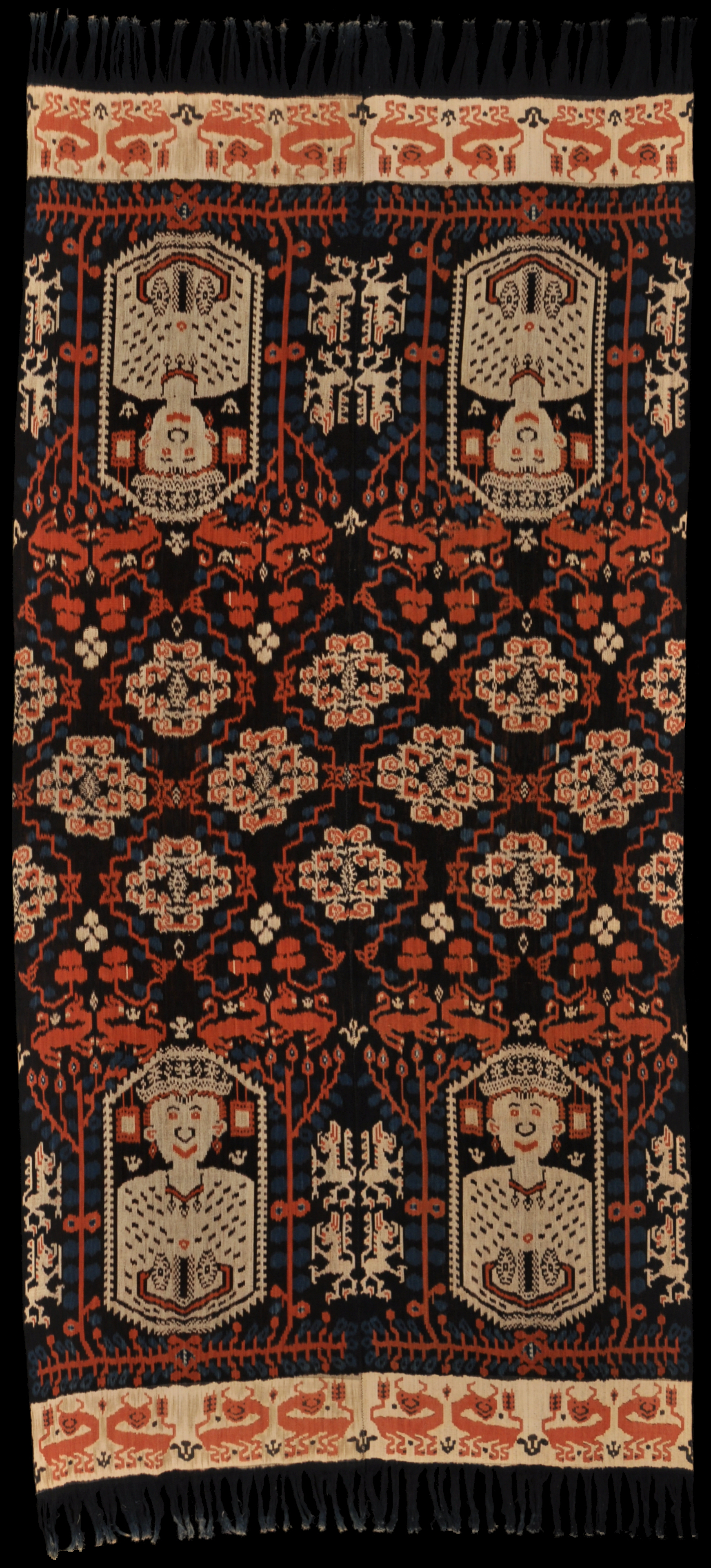| |
072 Sumba, East Sumba
Hinggi (men's blanket)
|
| Locale: | Pau or Petawang |
| Period: | 1950s |
| Panels: | 2 |
| Design: | Richly detailed portraits in white of crowned Queen Wilhelmina surrounded by climbing lions (from Dutch coat of arms). Patola-inspired midfield with large medallions, probably a variant of the habak or habaku motif that is a Pau hallmark. Dark and light indigo and two shades of morinda red on ecru. No kabakil (woven borders). |
| Size: | 120 x 245 cm (47.2 x 96.4 in) |
| Weight: | 830 g (282 g/m2) |
| Yarn: | Cotton, hand-spun, fine, double-ply |
| Comment: | Vintage piece of high quality, still made according to the old traditions and for in-context use. Intricate patterning in four colours with fine details, which has required a high number of bindings. Clean weaving and strong colours. Absence of kabakil indicates that it was never used, but stored as a pusaka. Microscopy shows that the double ply yarn was hand spun or wheel spun rather than factory made, as might have been presumed by its fineness and relative youth. Immaculate state of preservation with strong colours. |
| Background: | Additional information in chapters on Sumba and East Sumba. |
| Published: | Woven Languages, 2014.
Noble Virtuosity: Hidden Asymmetry in Ikat from Sumba, 2024. |
| Compare: | 065 071 073 019 152 |
| Sources: | Origin given by Kinga Lauren, who confirmed the dating and on the basis of cognated of confirmed origin in his collection, feels that Pau is probably the more likely of the two possible places of origin. |
| |
 ©Peter ten Hoopen, 2025
All rights reserved.
|


